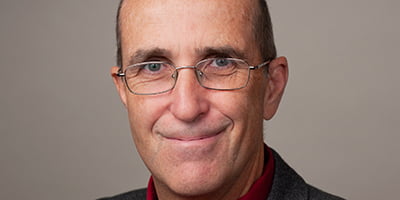
Leon Suprenant is the pastoral associate for administration in the office of the permanent diaconate. He also blogs at: www.archkck.org/blog.
by Leon Suprenant
Pope Francis devotes a substantial portion of his recent teaching on “The Joy of the Gospel” (“Evangelii Gaudium”) to the preparation and delivery of homilies, as he recognizes their pivotal role in the new evangelization.
I couldn’t help but chuckle at the Holy Father’s comment that homilies can be a source of suffering for ordained ministers and the faithful alike! Yet, the fact that most people will readily nod their heads at this lighthearted remark shows that the church has too often fallen short in this area.
Therefore, it is so refreshing that the pope would pay such meticulous attention to all that goes into the preparation of a homily, realizing that through the homily God reaches out in love to his people.
As ministers of the word of God, deacons proclaim the Gospel at Mass and are also sometimes called upon to preach the homily. At their ordination, deacons are given the Book of the Gospels and charged to “believe what you read, teach what you believe, and practice what you teach.” This mandate is accomplished in a particular way through the homily, so our diaconate office enthusiastically welcomed this instruction from the Holy Father.
Surely, insights derived from “Evangelii Gaudium” will be incorporated into
the dynamic, state-of-the-art homiletics training envisioned for our current candidates for the diaconate. We are also developing sound continuing education workshops on preaching for those who are already faithfully serving our local church as deacons.
Pope Francis emphasizes that the homily is a distinctive type of presentation — one that is neither “entertainment” nor a dry speech or lecture — which fosters the community’s encounter with God. The preacher must discern what the Holy Spirit wants the people to hear.
Therefore, he must not seek to answer questions people don’t have, nor should he strive simply to be hip or interesting — the pope says we have TV for that!
The Holy Father says the best homilies are simple, clear, direct, and well-adapted to the audience. He specifically calls for homilies that are “positive,” which offer hope, point to the future, and offer attractive ways to grow in love of God and neighbor.
A recurring point of emphasis for Pope Francis is that the homilist must have “a great personal familiarity with the Word of God” — not the familiarity of a scholar, but that of a saint.
While the pope has much to say to priests and deacons regarding their homilies, all of us do well to take to heart his exhortation to “never stop taking pleasure in the daily encounter with God’s word!”
Perhaps this coming Lent, we might consider committing ourselves to spending more “quality” time with the Lord each day in the sacred Scriptures.

